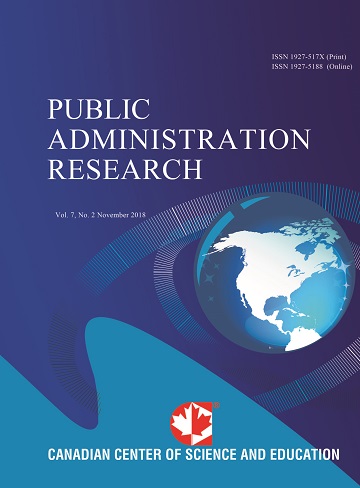Corruption and Insecurity in Nigeria
- Musa Idris
Abstract
The increasing incidence of the twin evils of corruption and insecurity in Nigeria in spite of efforts made bysuccessive administrations aimed at reducing their tide have been issues of public concern. The major objective
of this paper is to identify the causes of corruption and insecurity in Nigeria between 2001 – 2010 and examine
the relationship between the two. The research design is content analyses of secondary data from Transparency
International for corruption and the Mo Ibrahim Foundation for data on insecurity. The data has been presented
in tables and analysed using percentages and averages. The Spearman’s Rank Correlation Coefficient was used
in testing the hypothesis postulated. The major cause of insecurity in Nigeria is corruption and failure of
governance to achieve the Fundamental Objectives and Directive Principles of State Policy as contained in the
Constitution of the Federal Republic of Nigeria. Others are greed by insurgent groups and the proliferation of
weapons. The study revealed that there exist a perfect correlation between corruption and insecurity in Nigeria
and that greed by insurgent groups and corruption by public officials caused deprivation, alienation, conflict and
insecurity in Nigeria. The study recommends for improvement in the quality of governance in order to reduce the
incidence of corruption and insecurity in Nigeria.
- Full Text:
 PDF
PDF
- DOI:10.5539/par.v2n1p59
Journal Metrics
h-index (2017): 7
i10-index (2017): 6
h5-index (2017): 7
h5-median (2017): 13
Index
- CNKI Scholar
- COPAC
- CrossRef
- DTU Library
- EBSCOhost
- EuroPub Database
- Excellence in Research for Australia (ERA)
- Genamics JournalSeek
- Ghent University Library
- Google Scholar
- Harvard Library
- Infotrieve
- Jisc Library Hub Discover
- LOCKSS
- Mir@bel
- Norwegian Centre for Research Data (NSD)
- Open J-Gate
- PKP Open Archives Harvester
- Publons
- ROAD
- Scilit
- SHERPA/RoMEO
- Stanford Libraries
- Ulrich's
- UniCat
- Universe Digital Library
- UoS Library
- WorldCat
Contact
- Gabriel TaiEditorial Assistant
- par@ccsenet.org
